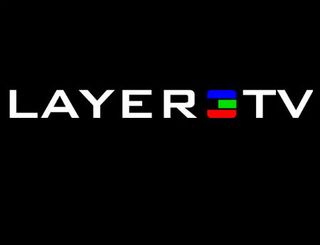Layer3 TV Opens Its Denver Headquarters

DENVER -- Layer3 TV, a startup that is billing itself as a “next-generation cable operator,” opened up its Denver-based corporate headquarters on September 15, and now employs a total of about 50 people across its Colorado and Boston locations, company officials confirmed here this week.
Its Denver headquarters is located on the 8th floor of 1660 Wynkoop Street, an 11-story building in the city's vibrant LoDo district, placing it nearby venues such as Union Station and Coors Field.
Founded in 2013, Layer3 TV now operates in three locations – its Denver headquarters, a distribution facility in the Denver area, and an office in Boston.
Layer3 TV announced in May that it would make Denver its home base while retaining its presence in Boston. At the time, the company said it plans to offer 312 new jobs in the Denver area, offering an average wage of $92,083. In support of the expansion and corporate relocation, the state of Colorado awarded Layer3 TV $2.9 million in job growth incentive tax credits and workforce development and technical assistance. Layer3 TV is also one of the companies featured in this campaign video from Colorado Governor John Hickenlooper.
Layer3 TV, the topic of much chatter at this week’s SCTE Cable Tec-Expo in Denver, is still being coy about its specific strategy and how that might compete with or complement more traditional multichannel video programming distributors. The company, which has raised $21 million so far, also has not announced when it intends to launch its service offering.
What is clear, though, is that Layer3 TV is in hiring mode, and has recently added some recognizable industry names to its lineup. During a visit to the company’s headquarters this week, Layer3 TV CEO Jeff Binder said John Roy, the former VP of national operations at Comcast who is also late of Charter Communications and Adelphia Communications, joined Layer3 TV as senior vice president of operations.
Additionally, Bob Scheffler, a co-founder of Broadbus Technologies (where Binder served as CEO before it was acquired by Motorola in 2006), recently joined Layer3 TV as head of architecture. During his subsequent time at Motorola, Scheffler continued his work on multiscreen backoffice systems and network/cloud DVR technologies.
Multichannel Newsletter
The smarter way to stay on top of the multichannel video marketplace. Sign up below.
While Layer3 TV has been somewhat quiet on its specific strategy, the company has been shedding some light on that during recent meetings at the FCC.
As this ex parte filing shows, Layer3 TV execs visited with members of the Commission on September 10 to discuss the company’s approach to multichannel video program distribution. During that meeting, the topic of the proposed Comcast/Time Warner Cable deal came up, as did the topic of network neutrality.
According to the filing, Layer3 TV “took no position at this time on whether the merger should be allowed,” but did offer net neutrality “safeguards” that the FCC might consider if the mega-merger was approved with conditions.
Layer3 TV didn’t list them out at the meeting, but did so in the ex parte filing. On its list:
-The ability to interconnect, for a reasonable price, at locations proximate to the customer base a company is trying to serve.
-Data caps, while appearing to safeguard a network from overload, present a challenge for companies serving video streams to the end user.
-From a business side, Layer3 TV offered that “bundling discounts” need to reflect some basis in cost differential, such that they are not used to discriminate use of the high-speed data service for competitive video purposes.
-Layer3 TV respectfully suggested that the FCC might consider some cap on peering charges based upon the total payload in a given month, whereby the costs are not so prohibitive as to prevent potential video competition.
Layer3 TV’s discussion at the FCC also went beyond the scope of “the potential for strict access to the Comcast network,” noting that Comcast-owned content “must be sold to competitive companies at a reasonable price,” and any rights to content owned by Comcast must be on par with those granted to the cable operator itself with respect to areas such as network DVRs, the ability to preload content on a DVR, and TV Everywhere apps.
